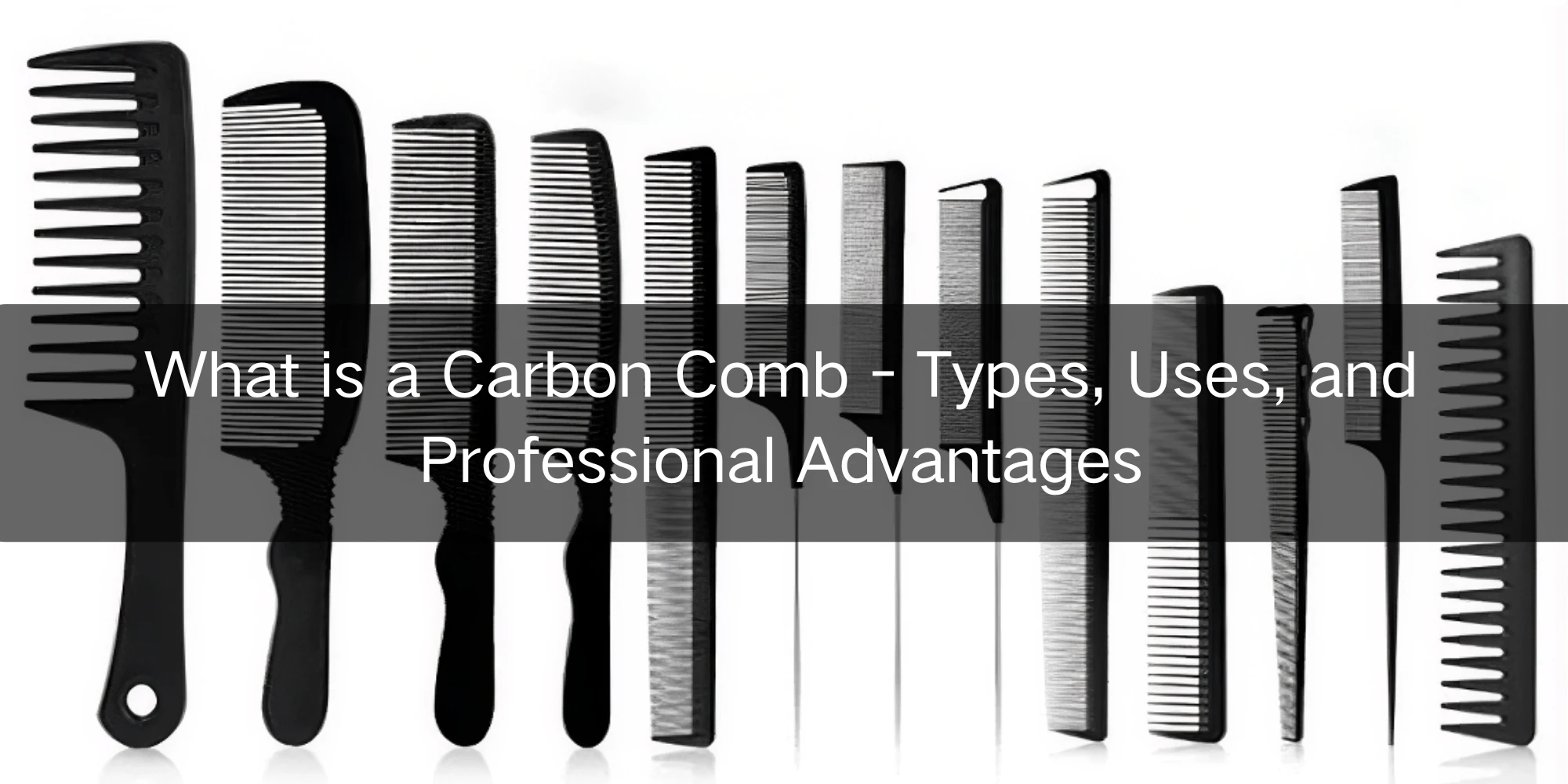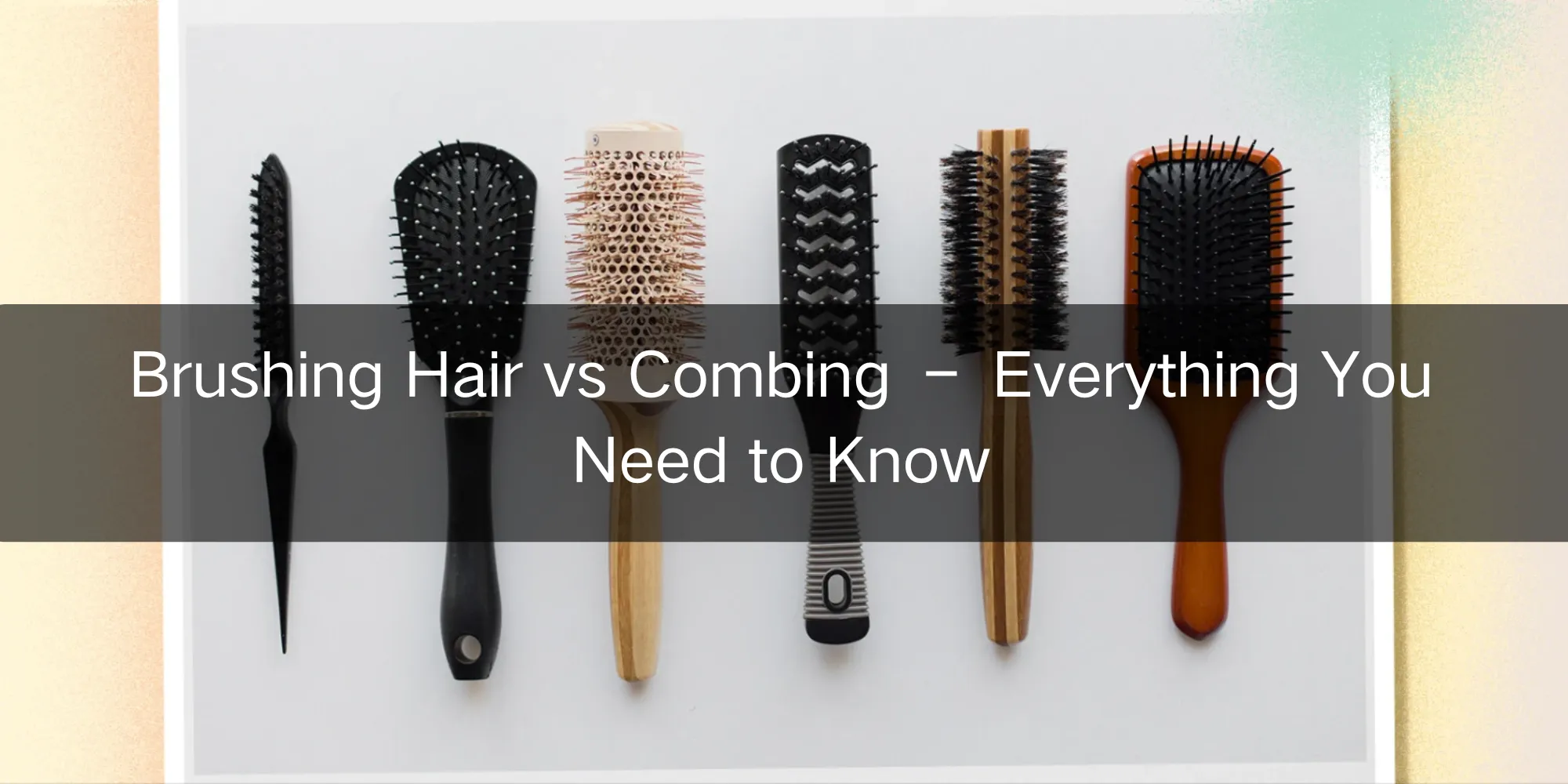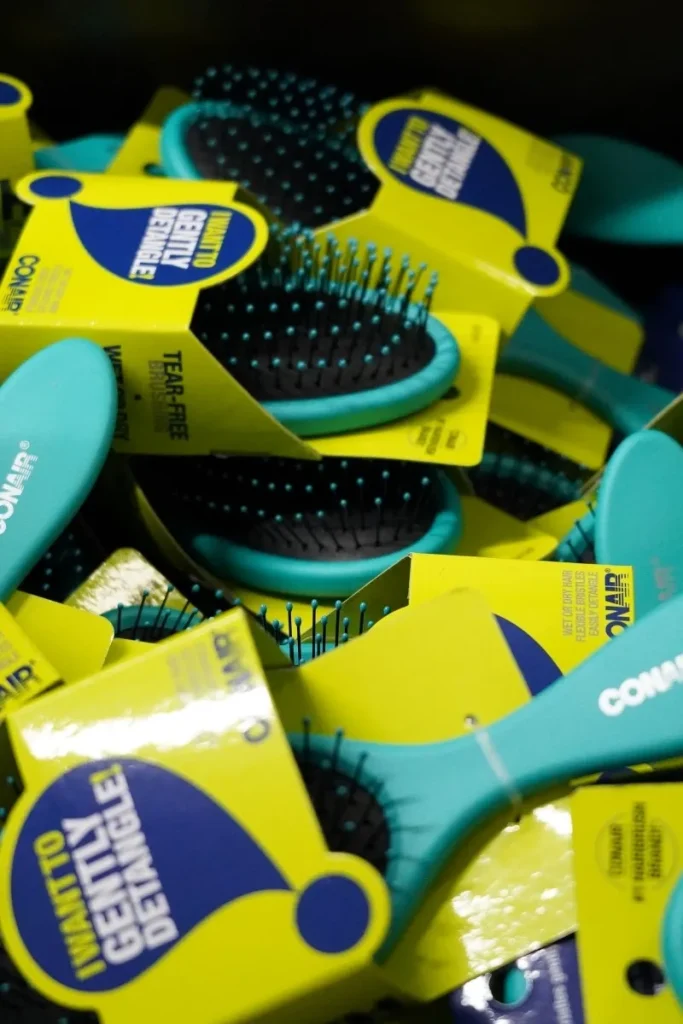In recent years, shampoo brushes have become well-known for an easier way to scrub the scalp and promote cleaner hair. From manual to electric styles, different types of brushes offer benefits as well as disadvantages. However, the question remains: are they actually beneficial for your hair? So, in this article, we will discuss the advantages and disadvantages of shampoo brushes and how to use them effectively.
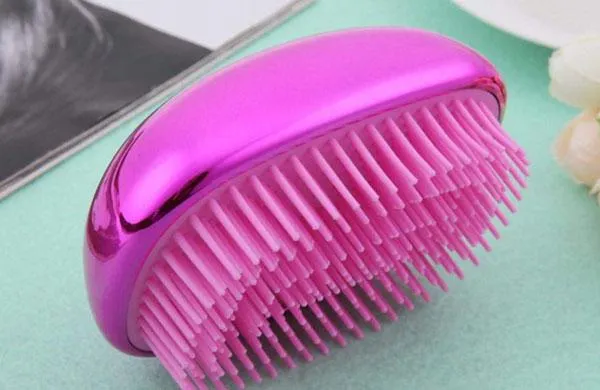
1) What Is a Shampoo Brush?
A shampoo brush is a scalp-cleansing tool for washing hair. These small brushes are designed with tiny soft bristles that scrub the scalp to wash off dirt, oil, and previous hair products. Additionally, the brush is comfortable to grasp within the palm and is also rotatable, which further enhances cleaning and improves the wellness of the scalp.
Almost all shampoo brushes are made from soft silicone or soft plastic. Silicone is softer and more flexible than plastic, however, both are safe for your scalp if used the right way.
➔ Types of Shampoo Brushes
Now we will explore types of shampoo brushes:
Manual shampoo brushes: As the name suggests, you have to move these with your hand. Because they don’t need batteries, they are easy to use.
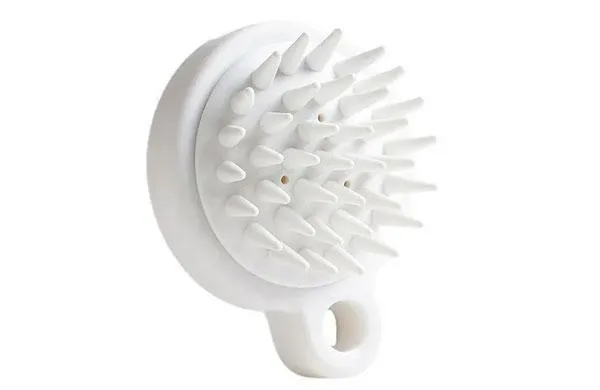
Electric shampoo brushes: On the other hand, they move or vibrate on their own; these brushes provide a gentle massage to your scalp. They usually run on batteries.
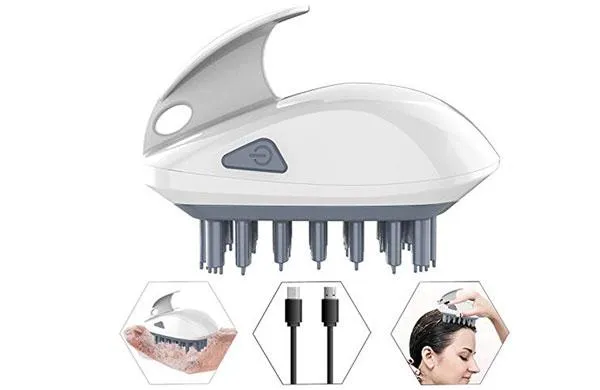
2) Benefits of Using a Shampoo Brush
Washing hair with a shampoo brush can be beneficial for the scalp and hair in numerous ways. In this section, we will discuss the key benefits of using a shampoo brush:
+ Deep scalp cleaning: One notable benefit of a shampoo brush is that it cleans the scalp far better than using your fingers. It assists in removing extra dirt, oil, and remnants of hair products, thus cleansing and renewing the health of the scalp.
+ Better lather and product use: In addition, it helps in the even distribution of shampoo, resulting in increased lather. This is beneficial as it works more effectively and may reduce the amount of shampoo needed.
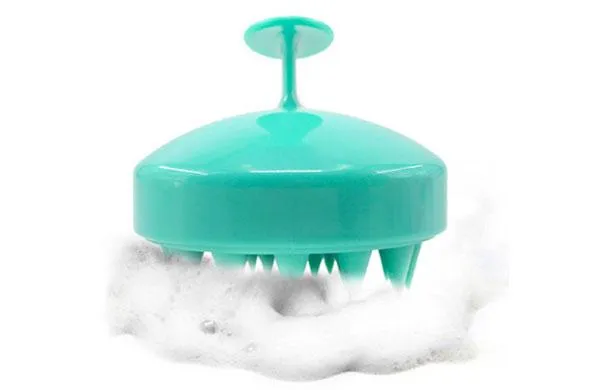
+ Helps remove dandruff and buildup: The soft massage that comes with the use of shampoo brushes lifts away any residue or flakes of dandruff, alongside remnants of hair products such as gels, hairsprays, and styling creams. This ensures an active, clean scalp, which avoids any accumulation of residue that would harm the condition of your hair.
+ Boosts blood circulation: The motion of the brush activates the micro blood circulation in the scalp. Hair follicles receive more oxygen and nutrients as a result of increased blood flow, which boosts overall hair health.
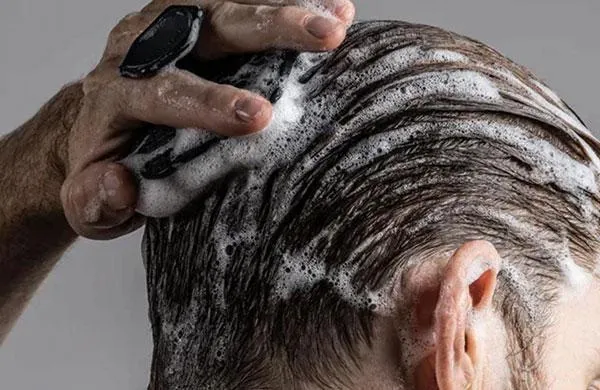
+ Can support hair growth: The combination of a clean scalp and proper blood circulation supports stronger hair growth(anagen phase). While it won’t increase the rate of growth, robust growth will be supported over time.
3) Possible Drawbacks
Though shampoo brushes can be quite helpful, they have some drawbacks as well. Here we will examine some issues that one must keep in mind:
– Overuse of brushing may irritate the scalp: If you use the shampoo brush too frequently or engage in excessive force during brushing, it can lead to inflammation of the scalp. Limit the use of the brush to 2-3 times a week. Focus on keeping your scalp comfortable by staying on circular, gentle movements.
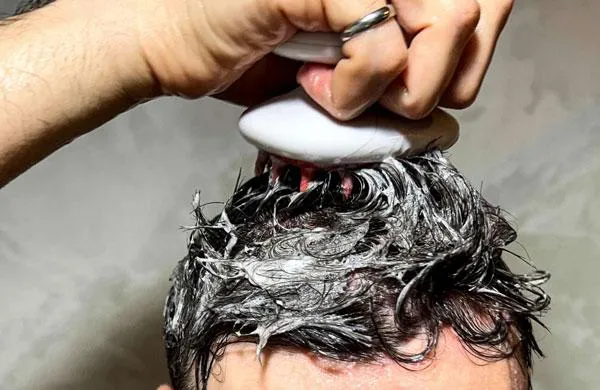
– Not suitable for very sensitive or damaged scalps: A shampoo brush may provide discomfort to those who have a sensitive or damaged scalp. In my opinion, you should go for a softer bristle shampoo brush.
– Low-quality brushes may break Hair: Inexpensive shampoo brushes are often poorly designed, and these can snag your hair and cause damage. These will result in doing more harm than good, so purchase a good shampoo brush that has soft yet firm bristles that effortlessly glide through your hair. In addition to shampoo brushes, look for other hair brushes made from impact-resistant materials.
4) Who Should Use a Shampoo Brush?
If you struggle with oil, dandruff, or product buildup on your scalp, a shampoo brush can help. A 2022 hair care survey showed that over 65% of participants with flaky scalps reported cleaner results after using a shampoo brush regularly. The brush enables better distribution of shampoo, particularly benefiting those with thick or long hair.
Roughly 70% of users with thick hair stated that shampooing became more effortless and effective. Short-haired individuals might find a brush less useful. Moreover, the same survey noted that 25% of respondents with sensitive skin reported some form of irritation. If you have a delicate scalp, it is safer to wash using your fingers and gentle strokes instead.
5) Tips for Using a Shampoo Brush Correctly
To get the best results from a shampoo brush, it’s important to use it the right way. In this part, we will discuss some simple tips to help you:
Use gentle, circular motions: Massage the scalp while brushing the hair. Gentle, circular motion of the brush will avoid irritation while removing dirt and debris.
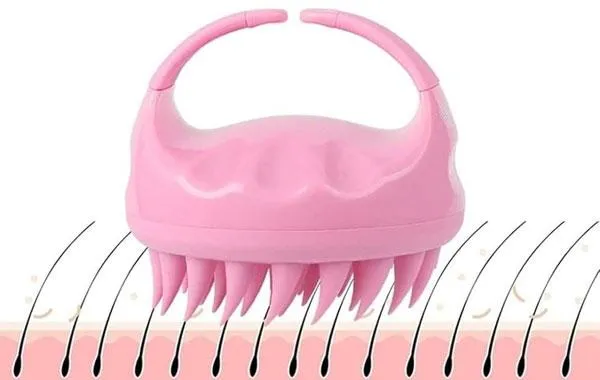
Don’t press too hard: You shouldn’t use it with too much force. If too much pressure is used, the scalp may become sensitive, and the hair may break. A gentle stroke is ideal in this situation.
Clean the brush regularly: Be sure that the brush is cleared of shampoo, hair strands, and dirt after every usage. To ensure that your brush is clean and free of germs, wash it thoroughly on a weekly basis.
Use the right shampoo for your hair type: Whatever type of hair and scalp you have, dry, oily, or irritable, pick a shampoo that matches your needs, along with the brush. The proper choice helps the brush work even better, as the right shampoo helps.
Conclusion
In short, shampoo brushes can be a useful tool when it comes to your personal hair care routine. They can assist in the thorough cleansing of your hair and scalp, enhancing lather while improving blood circulation, which helps in better scalp health. Potential drawbacks include low-quality or overly-used brushes, which may be irritating.
However, these issues can be avoided by using the brush correctly and gently. With the right care, a shampoo brush will benefit the cleanliness and health of your scalp and hair.


